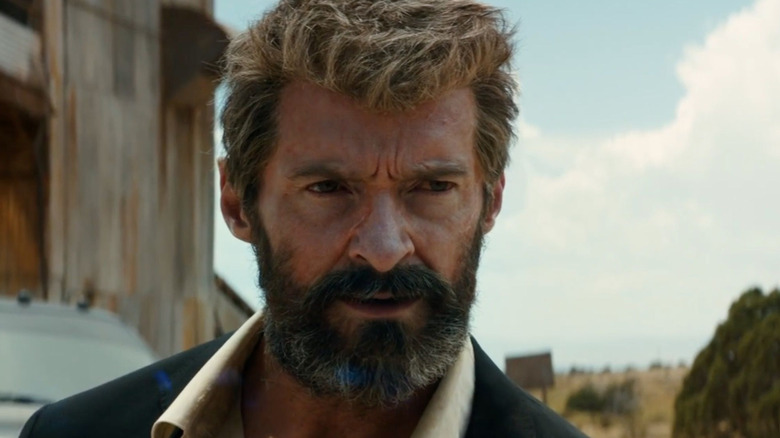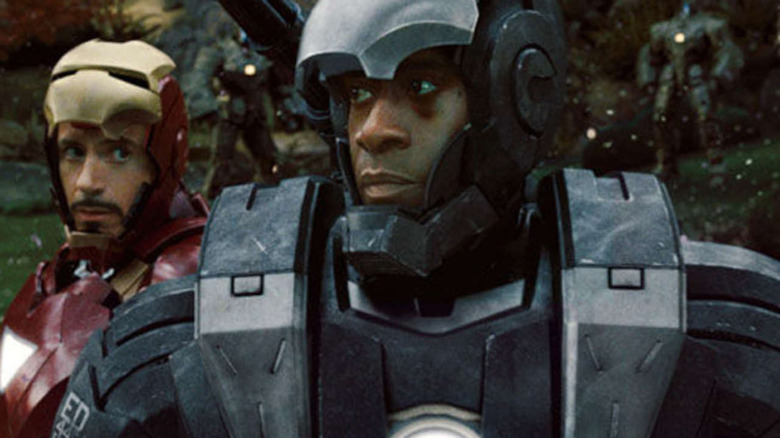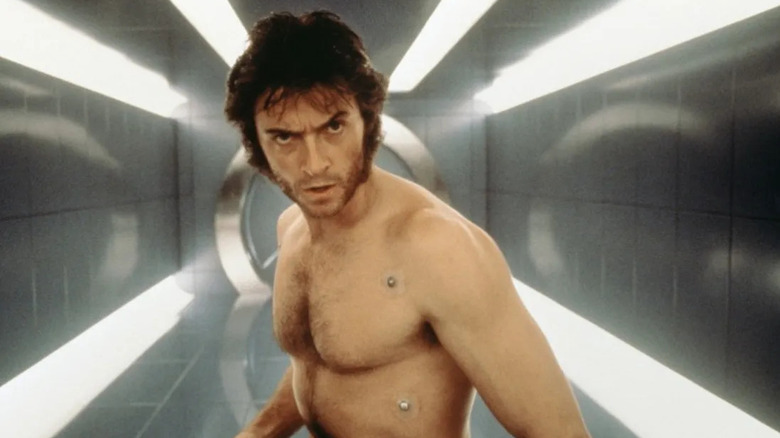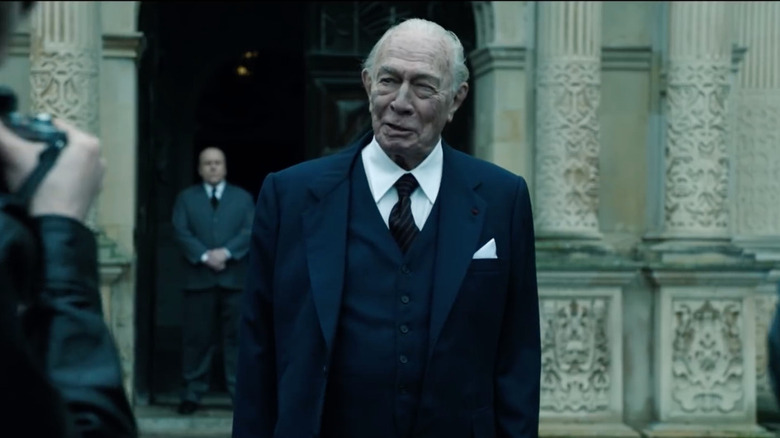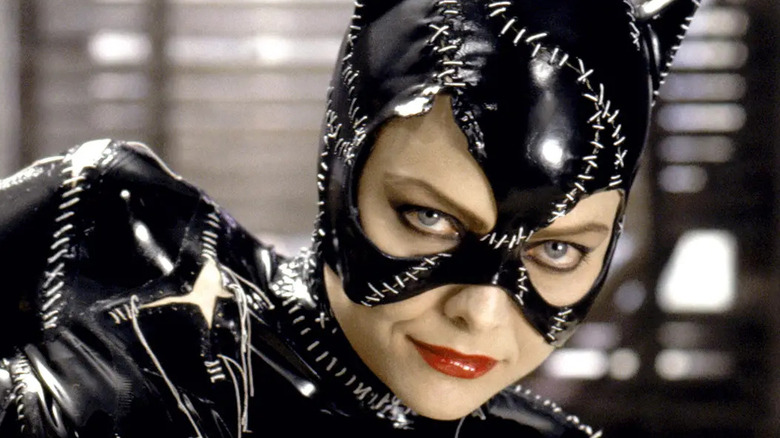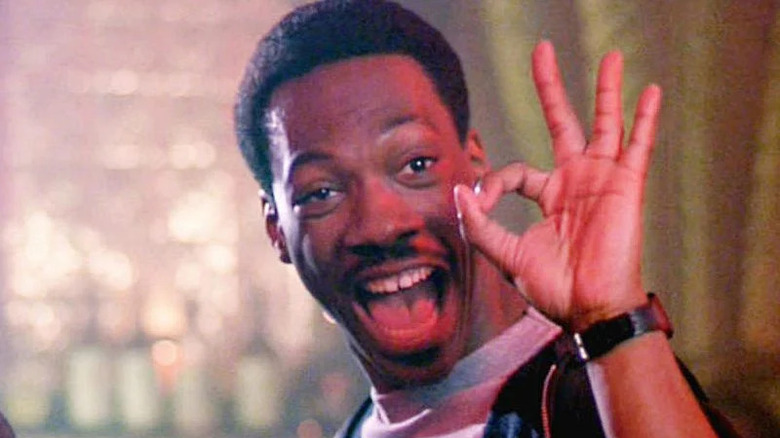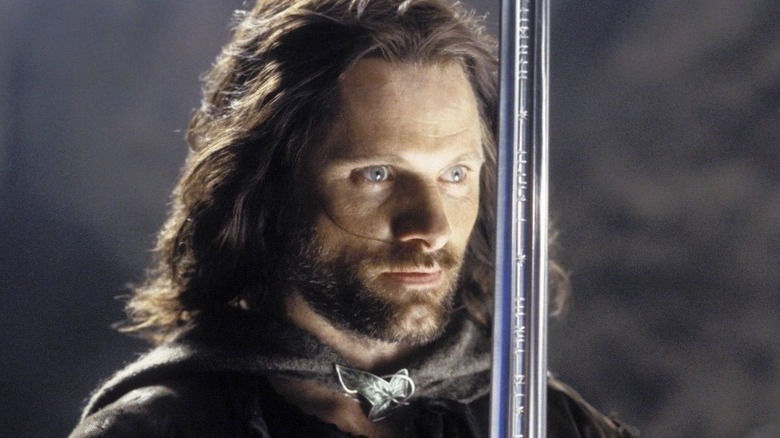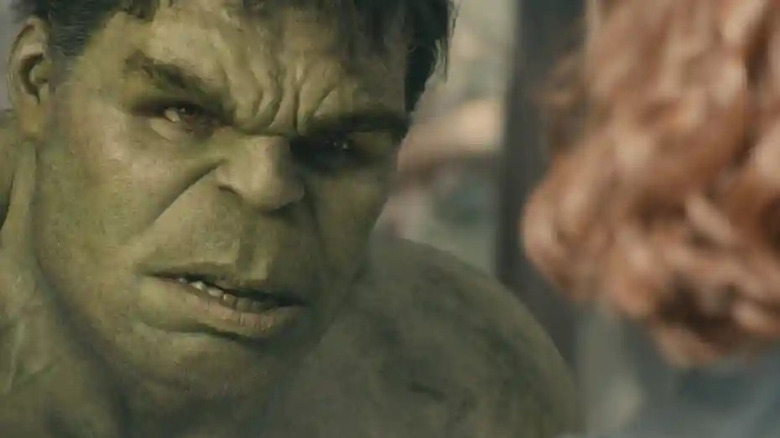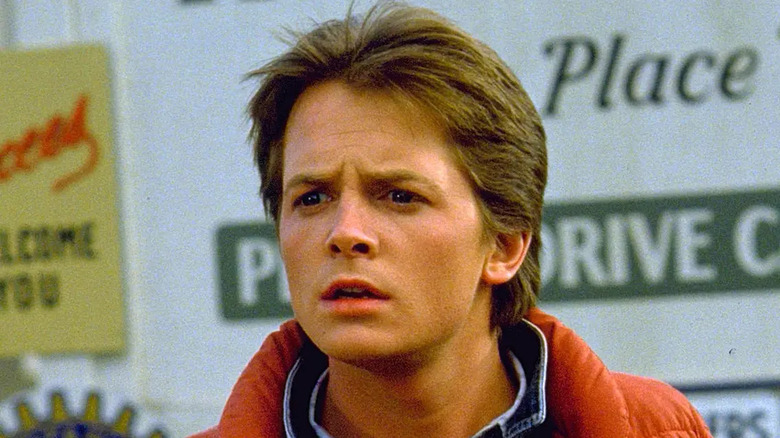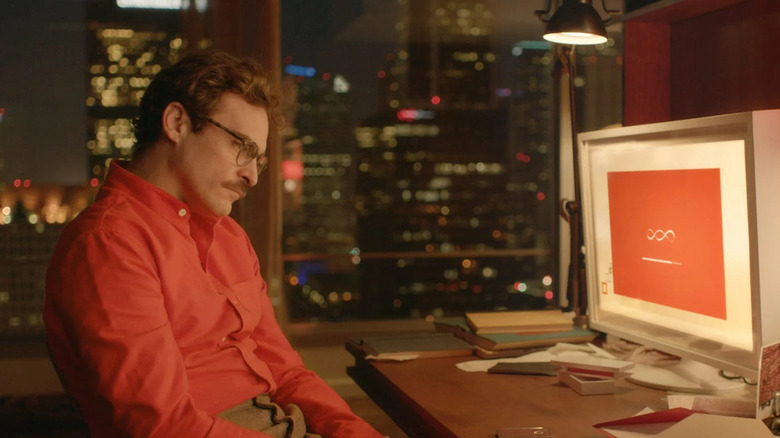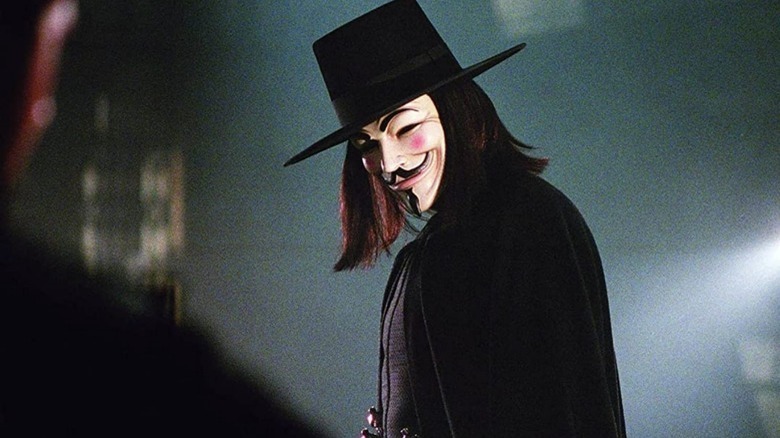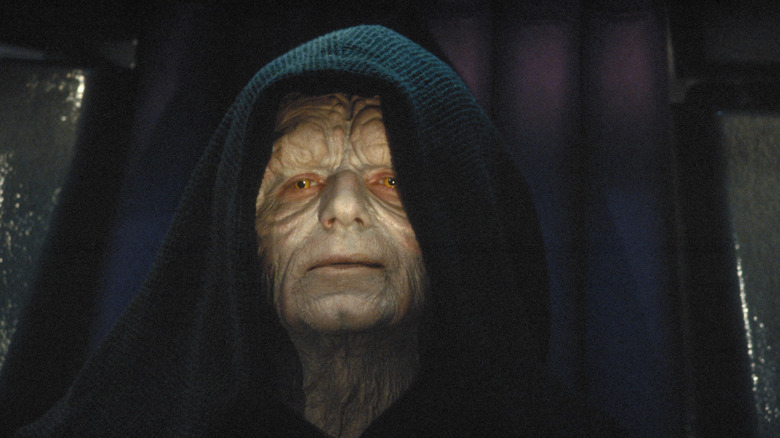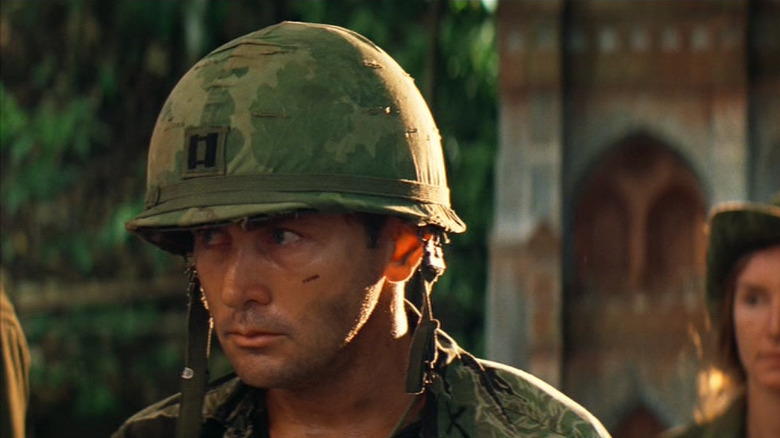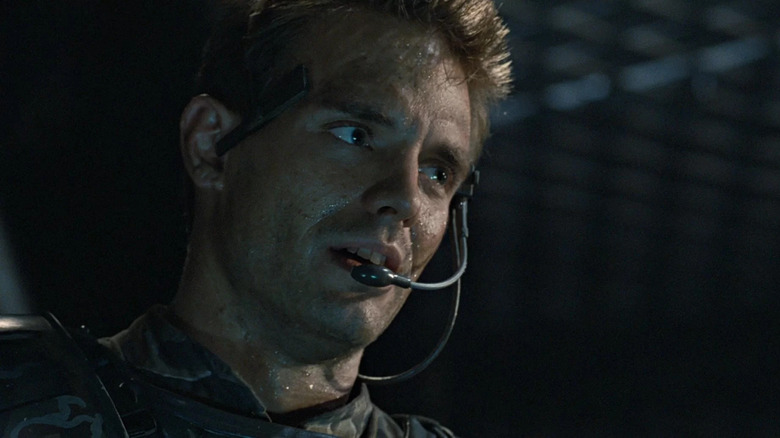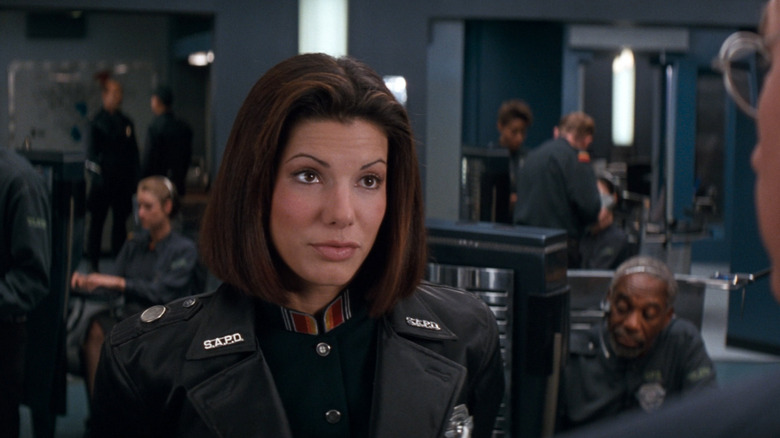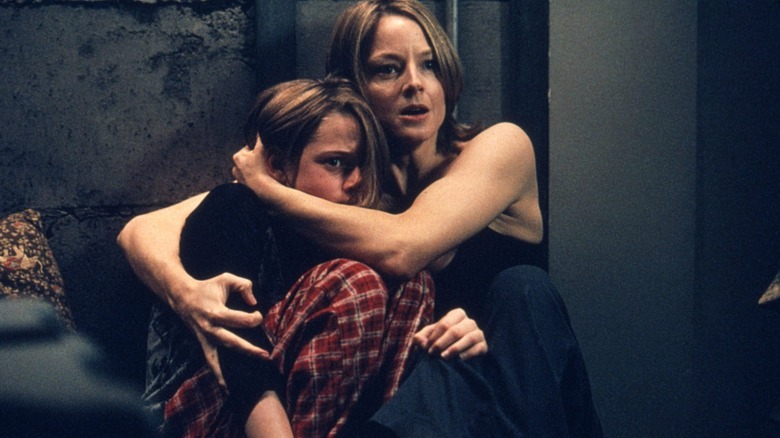Actor Replacements That Wound Up Being Upgrades For The Movie
Casting the perfect actor for a film role isn't an exact science. Countless things can go wrong, from actors being fired on set to scheduling conflicts to contract disputes. And while actor replacements can cause quite a stir for the casting department, in hindsight they can also be a blessing in disguise for the film. Quite often, those actors or actresses that are re-cast in a role end up being a massive upgrade for the film, making us wonder why the original person was cast in the first place?
With that being said, it's time to take a look at some of the best actor replacements in film that ended up being a major upgrade for the movie. This list will discuss actors that were replaced during, after, or even before production. Let's dive into 15 of the best actor replacements in recent memory.
Don Cheadle as Col. James Rhodey Rhodes
Released in 2008, "Iron Man" was the film that launched the Marvel Cinematic Universe. It introduced the iconic character of Tony Stark, a role that cemented Robert Downey Jr. as one of the most well-known and highest paid actors in the MCU to date.
In the first film, Tony's best friend Col. James "Rhodey" Rhodes is portrayed by Terrence Howard, who was a real-life friend to Downey Jr. at the time. Initially, Howard was a shoo-in for Marvel as he'd just come off his Oscar-nominated role in "Hustle & Flow" alongside the Academy Award-winning film "Crash." However, after the massive success of "Iron Man," Howard allegedly wanted a pay increase to match that of lead Downey Jr. In an appearance on Bravo's "Watch What Happens Live," he had a three-film contract with Marvel, and they were supposed to pay him $8 million for the sequel. However, after all was said and done, he was only offered $1 million, with the rest of his salary going to Downey Jr. According to Howard, Downey Jr. would not have the role of Iron Man if it wasn't for him.
Because of the drama, Howard was given the boot and replaced by fellow "Crash" star Don Cheadle. Cheadle would go on to portray the character of Rhodey-turned-hero War Machine in multiple other films. And while Howard's performance was good in "Iron Man," Cheadle brings an elegance to the role as he grows into more than just Iron Man's sidekick throughout the franchise.
Hugh Jackman as Wolverine
While "Iron Man" may have been the film to launch the MCU, it was 2000's "X-Men" that helped to catapult the superhero genre back into the pop culture stratosphere. The success of this film cannot be overstated as it launched a franchise of 10 X-Men films, along with the Deadpool films and a spin-off in "The New Mutants."
Anchoring the entire franchise is the fan-frenzied portrayal of Hugh Jackman's Wolverine, a character so popular that he essentially became the main protagonist in almost all the X-Men films. However, when "X-Men" was first being developed, casting directors initially offered the part to Russell Crowe, who turned it down. The role then went to Dougray Scott, but due to scheduling conflicts with "Mission: Impossible 2," he had to back out of the role. The director then turned to the then-unknown Australian actor Hugh Jackman.
The film is all the better for it, as it's almost impossible to imagine anyone else playing the role, all these years later.
Christopher Plummer as J. Paul Getty
Reshoots are very expensive by nature, so the prospect of replacing an entire role — especially a central one — after a film is nearing completion is almost unheard of. However, following the shocking allegations of sexual assault that were levied against Kevin Spacey in 2017, director Ridley Scott made the decision to cut Spacey completely from his role in the film "All the Money in the World." (Spacey was also dropped from multiple other projects, such as his once-hit Netflix series "House of Cards.")
The actor had already filmed most of his scenes for the film, but Scott hired celebrated star Christopher Plummer to step in and portray the role of J. Paul Getty instead. Plummer began working on reshoots of the Getty Oil Company founder right away, as Ridley was determined to still meet the film's original release date. Not only was this a morally sound decision on Scott's part, but it was also a boon for the film, as Plummer was nominated for Best Supporting Actor at the 2018 Academy Awards for his work on the role.
If you or anyone you know has been a victim of sexual assault, help is available. Visit the Rape, Abuse & Incest National Network website or contact RAINN's National Helpline at 1-800-656-HOPE (4673).
Michelle Pfeiffer as Catwoman
Michelle Pfeiffer's alluring performance as Catwoman in Tim Burton's "Batman Returns" almost never happened. Initially, the role was given to Oscar-nominated actress Annette Bening. However, she had to suddenly drop out of the film after discovering she was pregnant with her first child with husband Warren Beatty. According to Insider, the producers of the film were in a "panic" over trying to find a replacement for the role at the last minute.
Bening had already been fitted for Catwoman's skin-tight outfits, so when Pfeiffer was cast to replace her, she had to wear some of Bening's costumes, suggesting that the casting team needed to find an actress who could play the part and fit in the costume at the same time. Luckily, Pfeiffer was not only a perfect fit for the costuming, but her performance in the role was sensational and a defining one for the character. It's no wonder that she is consistently ranked as one of the best actresses to have ever played the role of the whip-slinging antihero.
Eddie Murphy as Axel Foley
Initially, 1984's "Beverly Hills Cop" was supposed to star Sylvester Stallone. The premise was meant to be an action-packed film with Stallone's Axel Foley as an over-the-top cop ready to save the day. However, the studio decided to make a change, instead opting for a fun cop comedy.
According to Comic Book Resources, Stallone had a more brutal installment planned for the film, even suggesting that the character name be changed from Axel Foley to Axel Cobretti. While this never happened, the name Cobretti would later inspire Stallone's character Lieutenant Cobretti in 1986's "Cobra." Meanwhile, the studio decided to go in an entirely different direction as Stallone's new suggestions would have bumped the cost of production way up. And just like that, Stallone was out, and Eddie Murphy was in as Axel Foley. The film stuck to its comedy roots, resulting in one of the most successful comedy franchises ever.
Viggo Mortensen as Aragorn
Nowadays, it's probably impossible to think of Isildur's heir and the true king of Gondor as being anyone but Viggo Mortensen. However, did you know that he only became tied to the project once shooting was already underway for "The Lord of the Rings: The Fellowship of the Ring"? Initially, Peter Jackson's epic trilogy had Stuart Townsend cast in the role, but after filming just four short days, Jackson reportedly decided that the actor was too young to take on such a heavy role.
Townsend later revealed that he was almost relieved when he was fired, as his experience with the studio and director was not a positive one. However, he was still quite miffed that after months of training and rehearsing for the role, he never got paid for his time due to the terms of his contract. Nevertheless, once Viggo Mortensen was brought on to replace him, the cast truly worked together to create the cultural phenomenon that was "The Lord of the Rings," with several cast members getting matching tattoos to commemorate the experience. And thanks to Mortensen's portrayal, Aragorn has become one of the most popular characters from the "Lord of the Rings" franchise.
Mark Ruffalo as The Hulk
Before his appearance in "The Avengers" in 2012, the character of Bruce Banner (aka The Hulk) was initially portrayed by two other actors in major silver screen productions. First, Eric Bana took on the role in Ang Lee's 2003 film "Hulk." Then, a new film was released in 2008 featuring an entirely new cast. The film, titled "The Incredible Hulk,” was officially Marvel's second film in the MCU — this time, with Edward Norton portraying the titular character.
Norton was meant to keep the role when the Hulk was brought into the larger story in "The Avengers." However, there were some severe and dramatic behind-the-scenes complications that lead to his recasting, resulting in the studio hiring Mark Ruffalo, who would go on to play the character in every subsequent MCU film featuring the character thus far. Compared to the other iterations, Ruffalo's Hulk is quieter in his demeanor. The actor brings out more of his loneliness, intellect, collaborative spirit, and his kindness — all traits that were missing in both Bana and Norton's portrayals of the character. It's because of this that Ruffalo's Bruce Banner has grown into his own character outside of the green monster persona.
Michael J. Fox as Marty McFly
"Back to The Future" is another franchise that has been famously plagued with various casting replacements. First up, Marty's girlfriend Jennifer Parker was portrayed by Claudia Wells in the first film. However, when it came time to shoot "Back to The Future Part II " she was replaced by Elisabeth Shue. Then there's the very messy matter of Jeffrey Weissman replacing Crispin Glover as Marty's father. After a pay dispute with the studio, Glover was replaced by Weissman, who wore prosthetics to look like Glover in the sequel film. Glover then sued over the use of his image without his consent, and, thanks in part to his suit, studios have largely avoided using an actor's likeness without permission ever since.
However, the most notable replacement that was a huge upgrade for the film was when production decided to have Michael J. Fox replace Eric Stoltz as Marty. "Back To the Future" was already four weeks into production with Stoltz playing the film's lead character when director Robert Zemeckis decided he just wasn't right for the role. Zemeckis felt that Stoltz was too serious for the role, and he wanted the project to be more light and carefree. Fox, whose schedule was complicated by his commitment to the hit series "Family Ties," eventually came in to reshoot Marty's already-completed scenes and finish the film. And the actor brought all of the desired energy to the character, transforming the film into a full-on franchise and one of the most iconic and influential movies in cinematic history.
Scarlett Johansson as Samantha
This entry is an interesting one. The actor replacement this time around is for a voice character of the artificial intelligence Samantha in the 2013 science-fiction romantic drama "Her." Initially, actress Samantha Morton was cast to play the voice behind the screen as the love interest A.I opposite Joaquin Phoenix. While she recorded all of her lines, and Phoenix's acting was timed with her vocal rhythms, it wasn't until after the movie wrapped that director Spike Jonze decided Morton wasn't right for the role.
He told Vulture that it was during the editing stage in post-production that the delivery Morton gave for Samantha didn't create the effect that he wanted. So he chose that moment to recast the role with Scarlett Johansson, along with revising the character and bringing back Phoenix to dub some of his own lines. Ultimately, this was the right call, as Johansson's performance was highly celebrated — including a win for Best Actress Award at the Rome Film Festival in 2013. Johansson would later use her voice acting talents again in films like "The Jungle Book," "Isle of Dogs," and "Sing 2." And thanks to this key replacement, "Her" presented a highly compelling relationship between Phoenix's character and the A.I Samantha.
Hugo Weaving as V
2005's dystopian political drama "V For Vendetta" initially starred actor James Purefoy in the role of V. The character is a masked vigilante who attempts to spark a revolution of freedom through acts of terrorism. Purefoy spent six weeks filming the role of V before ultimately leaving the movie. There were rumors flying around that he couldn't stand wearing the mask, which resulted in him leaving the film. However, that wasn't the case. Purefoy stated that both he and production agreed not to go into details over why he left the project, but he assured fans that it wasn't over him having to wear a mask for the role (per TheThings).
Once Purefoy left the film, Hugo Weaving stepped in to replace him, and while Purefoy may have done an excellent job if he'd stuck with the role, Weaving's performance was downright perfect. The actor was able to embody the strength and emotion of the character simply through the use of his voice. No doubt, anytime anyone thinks of the phrase "remember, remember the 5th of November," it's heard in Weaving's voice every single time.
Ian McDiarmid as The Emperor
When "Star Wars: Episode IV – A New Hope" was released in 1977, Darth Vader was the villain of everyone's nightmares. So when it came time to reveal that there was an even bigger baddie pulling Vader's strings in the follow-up films, that casting had to be on point. Whoever played the evil emperor had to be more menacing than Vader, which was no easy task.
In "Star Wars: Episode V – The Empire Strikes Back," the emperor is voiced by Clive Revill and portrayed by actress Elaine Baker. However, when it came time to really develop the character and have the hero Luke Skywalker face off with and be tempted by the emperor, Ian McDiarmid was recast to play both the voice and the character. This is a role he would continue to play in the prequel and sequel films. Although this is an incredibly subtle change, it made all the difference, as the intensity and force of unlimited power that McDiarmid brings to the role is unmatched. He's able to balance the characters of both Chancellor Palpatine and the evil emperor hiding under the surface. Audiences can feel that there's something sinister about Palpatine, but we can also see how he's so easily deceived everyone around him. Without McDiarmid's portrayal of the emperor, "Star Wars" would not be what it is today.
Martin Sheen as Captain Benjamin L. Willard
Considered to be one of the greats of film history, "Apocalypse Now" went through a lot of drama when trying to land its leading actor to play the role of Captain Benjamin L. Willard. At first, director Francis Ford Coppola looked at Steve McQueen, but the actor asked for a salary that Coppola wasn't interested in paying. According to Variety, Coppola looked at other actors such as James Caan and Al Pacino for the role before finally landing on Harvey Keitel.
However, Coppola also wasn't happy with his own back-up choice because after only a few weeks of filming, he was replaced by Martin Sheen. Due to arriving a little late, the cast was required to do reshoots with Sheen to get him caught up on the days filmed with Keitel. However, this was all for the greater good, as Sheen was able to bring out a haunting realism to the character. Captain Benjamin L. Willard was a quiet man who would observe the horrors, making him the perfect narrator for audiences as we went on this journey into Vietnam with him.
Michael Biehn as Corporal Hicks
Director James Cameron's Alien sequel introduced audiences to the likable Corporal Hicks, a space marine and potential love interest for Sigourney Weaver's leading hero Ripley. Initially, Cameron cast James Remar in the role of the Hicks, however he was later fired and replaced by Michael Biehn. According to ScreenRant, Remar was reportedly incredibly difficult to work with on set, and as such, his portrayal of Hicks was a lot darker than the initial character development. Remar later went on to tell Sidebar (via Den of Geek) that he was suffering from a serious drug addiction during the time of filming, and that likely resulted in his being let go and replaced from the project.
Biehn was brought in as the replacement fresh off of his success from "Terminator." He brought a different perspective to the character, and one that aligned more with Cameron's vision of Corporal Hicks. However, if you look closely at "Aliens," there are still a few moments when you can see Remar's Hicks, as it was too expensive to reshoot and replace all his scenes with Biehn.
Sandra Bullock as Lieutenant Lenina Huxley
1993's "Demolition Man" was a huge break for actress Sandra Bullock. However, her role as Lieutenant Lenina Huxley was initially given to Lori Petty. Petty was cast in the role and on set filming for a total of three days before being replaced by Bullock. According to Entertainment Weekly, Petty was fired from the role due to the studio's dissatisfaction with her dailies. Petty also admitted she and co-star Sylvester Stallone did not get along well, saying, "Sly and I were like oil and water."
Fresh-faced Sandra Bullock stepped into the project and brought some necessary naivete to the role — something that was incredibly necessary as Huxley is oblivious to all the things that LAPD Sergeant John Spartan (Stallone) represents. Bullock was also the perfect balance to Stallone's hard and no-nonsense Sergeant, giving audiences a couple and a character to root for.
After her time in "Demolition Man," Bullock's career only continued to flourish, as she became a household name and blockbuster sensation, in addition to a critically revered Oscar-winning drama star.
Jodie Foster as Meg Altman
While Jodie Foster has long been celebrated for her portrayal of Meg Altman in "Panic Room," the role was initially offered to Nicole Kidman. Kidman's career was thriving at the time, and she had just finished filming Baz Luhrmann's "Moulin Rouge!" (which would net her a first of many Oscar nominations). However, due to a leg injury she sustained on the set of Luhrmann's film, she had to abandon the project after two weeks of filming, leaving production to look to Jodie Foster to fill her shoes.
Foster had gained critical acclaim for her roles in 1991's "The Silence of the Lambs" and 1997's "Contact." Luckily, Foster already knew director David Fincher, as he was eyeing her for another project. Therefore, it's safe to say that he already knew her capabilities as an actress, so it was likely a no-brainer to bring her into his thriller film. This ended up being the right choice, as Foster would bring a ferocious energy to the role of a woman desperately trying to protect her vulnerable child from some very vicious home invaders.
